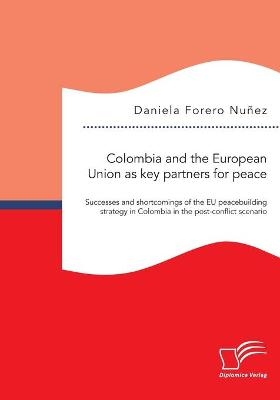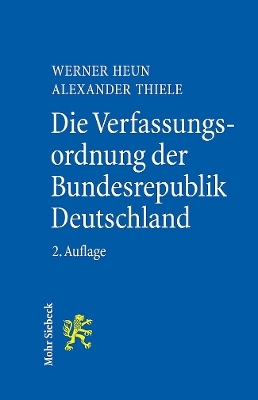
Colombia and the European Union as key partners for peace. Successes and Shortcomings of the EU peacebuilding strategy in Colombia in the post-conflict scenario
Diplomica Verlag
978-3-96146-867-6 (ISBN)
Daniela Forero Nuñez, B.A. wurde 1998 in Bogotá, Kolumbien geboren und lebt in Deutschland seit 2017. Ihr Studium der Politikwissenschaft und Geschichte an der Universität Regensburg schloss die Autorin im Jahre 2021 erfolgreich ab. Zurzeit ist sie Masterstudentin im Fach Internationale Studien/Friedens- und Konfliktforschung an der Johann Wolfgang-Goethe-Universität in Frankfurt am Main. Bereits während des Studiums sammelte die Autorin praktische Erfahrungen im Zusammenhang mit der Friedensbildung und der Wahrheitsfindung in Kolumbien. Ihre Tätigkeiten in diesen Bereichen und ihr ehrenamtliches Engagement, um den kolumbianischen Friedensprozess von Deutschland aus zu unterstützen motivierten sie, sich der Thematik des vorliegenden Buches im Detail zu widmen.
Textprobe:Kapitel 4.1 Historical background and course of the Colombian internal armed conflict:Colombian internal armed conflict has its roots in a broad range of structural factors, which summed up together have resulted in one of the most violent and longstanding conflicts around the globe. At the same time, its prolongation over several decades has a multicausal nature. Even though many additional components have fueled sociopolitical violence in the territory - like is the case of drug trafficking (cf. Bello Montes 2008: 79f) - the most decisive root causes of the conflict can be traced back to the i) State's weakness and its failure at being present throughout the whole Colombian territory; ii) the socioeconomic inequality, reflected in the asymmetrical possession of land and the lacking access to basic services on the part of a vast number of Colombians (cf. Ioannides 2019: 2); and iii) the limited political participation of many societal segments, which has aggravated political polarization (cf. Bello Montes 2008: 76). Bearing in mind that these, and other factors are deeply interconnected, the interplay of such has turned the Colombian territory into the battleground for a complex and multifaceted dispute, bringing together various, predominantly antagonist actors. The State, leftist guerrillas, right-wing paramilitary groups, drug cartels as well as criminal bands and organizations, have thus far been responsible for a violenct outbreak that has affected primarily Colombian civil society and has massively deteriorated social fabric and trust towards the authorities (cf. Ioannides 2019: 1).The urban-rural gap, aggravated by the extremely unequal access to land in rural areas, has its roots in the socioeconomic disparities regarding income throughout the territory. The marked institutional vacuum in the rural areas - influenced by Colombia's geographical constitution - has led not only to a lacking provision of public services and to an insufficient social and political participation, but has also laid the ground for the origin and strengthening of insurgent groups aiming to fill the government's gap (cf. Ioannides 2019: 2). Uneven land's possession land has, however, manifested more notably due to the non-inclusive political system (cf. Grasa 2020: 3). Political polarization dates back from the 1920s, distinguished by the clash between the Conservative and the Liberal parties (cf. Castilla 2018: 3). The ideological dichotomy that shaped the political landscape at the time was further accentuated when the Colombian Communist Party (PCC) came into play in the 1940s.18 The late 1940s are widely considered as the key historical - denominated La Violencia - that continued to plague the country for decades (cf. Bello Montes 2008: 76). Within this context, rural areas turned into the main scene of a deep-rooted enmity that led to a death toll of 180.000 Colombians until 196519 (cf. UNDP 2003: 25). Aiming to put an end to the rivalry between Liberals and Conservatives, the National Front (1958-1974) agreed to alternate the power between both parties in the presidency, ensuring equal representation on all executive and legislative bodies and ministerial posts (cf. Acevedo Tarazona 2015: 28; 32).The political exclusion of third parties associated therewith is considered as a decisive factor in the origin of guerillas and the prolongation of the political violence heretofore. In the 1960s, the first guerrilla groups - that would then turn into one of the main actors in the long-lasting internal armed conflict - began to emerge in the rural areas of the country. (cf. Bello Montes 2008: 76). Albeit both political parties resorted to the formation of armed groups in isolated rural areas to combat its enemy, the liberal guerillas - mainly composed of peasants - allied with the remaining fraction of the PCC, which had been excluded from the political system during the National Front and gave birth to the Revolutionary Armed Force
| Erscheinungsdatum | 10.12.2021 |
|---|---|
| Sprache | englisch |
| Maße | 190 x 270 mm |
| Gewicht | 204 g |
| Themenwelt | Sozialwissenschaften ► Politik / Verwaltung ► Politische Theorie |
| Sozialwissenschaften ► Politik / Verwaltung ► Vergleichende Politikwissenschaften | |
| Schlagworte | Entwicklungspolitik • Entwicklungszusammenarbeit • Friedensbildung • Friedensprozess • Kolumbien • Postkonflikt • Versöhnung |
| ISBN-10 | 3-96146-867-2 / 3961468672 |
| ISBN-13 | 978-3-96146-867-6 / 9783961468676 |
| Zustand | Neuware |
| Haben Sie eine Frage zum Produkt? |
aus dem Bereich


